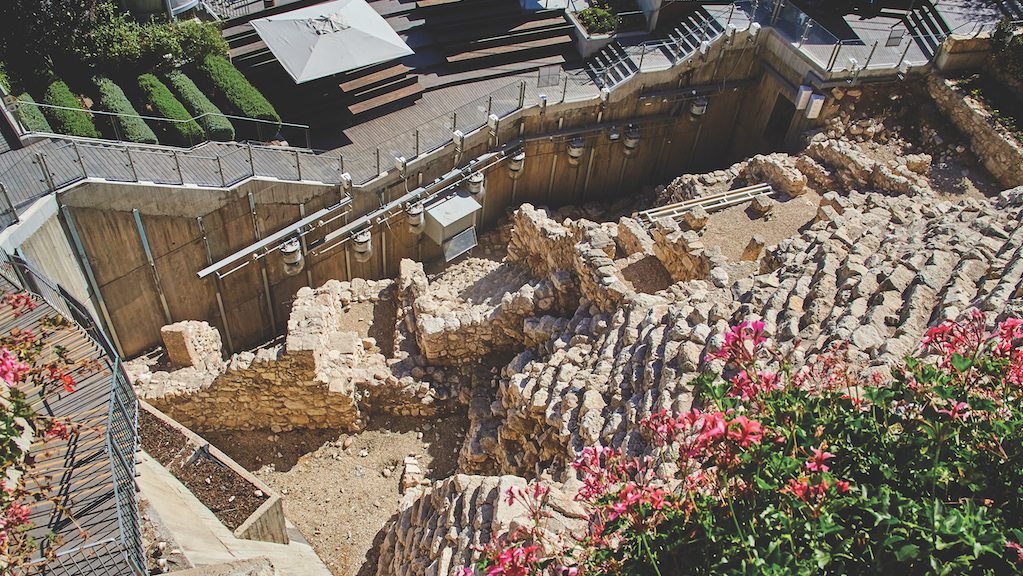The Royal City The History of Jerusalem—Part 3
Its transformation was breathtaking. From an obscure heathen Jebusite walled village perched on Ophel Hill, it became the capital of the United Kingdom of Israel. The arrival of the ark of the covenant, symbolising the throne and presence of Almighty God, made it a
holy city. And God’s promise to give David a son and heir, who would rule from his throne forever made it the city of the great king. To seal its special nature, God Himself said that the city was the place where His name would dwell (1 Kings 11:36; 2 Kings 21:4; 7; 2 Chronicles 6:6; 33:4; 7; Revelation 3:12).
This is Jerusalem, the city of David and the city of God. It was already a thousand years old when David took control of it. Now that his kingdom was established, Jerusalem became the royal city. In this article, we will see how the sons of David fared while ruling and reigning from there.
Temple of Solomon (963 BC)
As a worshipper of God, David had a passionate desire to build a house in Jerusalem for Him. After all, David lived in a king’s palace, while God’s earthly abode was a glorified tent called the Tabernacle. God declined David’s offer because he had shed too much blood as a warrior king. Yet, at that point, God made the famous Davidic covenant of 2 Samuel 7 and 1 Chronicles 17, promising the coming son of David, King-Messiah.
The job of building the temple was left to David’s successor and son, Solomon (Hebrew: Shlomo), whose name means ‘peace.’ Solomon commenced building the temple according to the plans and material resources left by his father, David. No expense was spared; it had to be exceedingly magnificent. Some estimate that it would have cost billions of dollars in today’s currency. The dedication of the temple in 1 Kings 8 was one of the pinnacles of Israel’s Old Testament history. Now God had a stable local earthly address, Israel had a meeting place for the three pilgrimage feasts of Passover, Pentecost, and Tabernacles; and the Gentiles had a house of prayer for all nations (Isaiah 56:7; Matthew 21:13; Mark 11:17; Luke 19:46).
An Avoidable Split
Solomon’s love of many strange foreign women, who worshipped false gods (1 Kings 11:1-2), caused him to fall out of favour with God. As a result, the union between Judah and the northern ten tribes was about to rupture.
Rehoboam as Solomon’s successor, seriously lacked his father’s wisdom. He was the ‘son’ addressed in the Book of Proverbs (3:1) who rejected wisdom’s invitation. He and Jerusalem suffered as a result.
The battle lines were drawn: King Rehoboam, the grandson of David, ruling from his throne in Jerusalem, was confronted by Jeroboam, son of Nebat, who represented the ten tribes of the north. “Lighten our burden that Solomon your father put on us,” said Jeroboam, ‘and we will serve you’ (1 Kings 12:4). Solomon’s advisors urged Rehoboam to agree to their reasonable demand. However, he foolishly rejected their advice and listened to his mates who told him to “add to their yoke” and “whip them with scorpions.” It was the height of arrogance and folly and cost the king the bulk of his kingdom.
The ten tribes from the north, led by Jeroboam, separated from the kingdom of David. All Rehoboam was left with was Judah, Jerusalem and the holy temple. Jeroboam and the northern tribes became known as ‘Israel’, and Rehoboam and the house of David became the kingdom of Judah.
Give us a King
God’s plan from Day One was His Kingdom, and it still is. God’s Kingdom and His forever king are His first priority. Everything else flows from that. Yet, the free will that God gave us has resulted in some terrible decisions and outcomes. The first couple, Adam and Eve, rejected God’s rule. Their disobedience introduced sin and death into the world. Centuries later, the people of Israel rejected God as king by demanding that the prophet Samuel give them a human king. Why? So they could be like all the other (godless) nations of the earth (1 Samuel 8:20). Samuel warned them that a human king, even an Israelite one, would use and abuse them, all pain and no gain. Unmoved by this grim prospect, Israel still clamoured for a king. They ended up with Saul, and he was a disaster.
After the division of the house of David into Israel and Judah, there was a succession of kings on both sides. Many were bad (they did what was evil in the sight of the Lord), and some were catastrophic. Out of thirty-nine monarchs in Israel and Judah, only eight were good, all from Judah. Some of the notable good ones were Jehoshaphat, Hezekiah, and Josiah, yet even they made their foolish mistakes; Josiah’s cost him his life.
Jerusalem witnessed all this and more. The lesson: even the best of earthly kings is no match for the King of kings and Lord of lords. Centuries later, that perfect king did come to Jerusalem, and it responded by hanging Him on a tree. He rose from the dead and is coming back, but not before they say, “Blessed is he who comes in the name of the Lord” Matthew 23:39.





